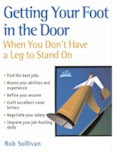In a very real sense, the single best way to advance in your career is to be a good story-teller. That probably sounds strange, so let me explain what I mean. I’m not saying you should become one of those people who can manipulate the facts and talk their way in and out of situations with no regard for anyone other than themselves. We have enough people like that in the world already.
Instead, I’m suggesting you become a good story-teller by truly appreciating what you have to offer, understanding how it relates to what people need, and finding the most effective way to communicate your potential to succeed. That is not nearly as easy as it might sound.
I’ve been working with job hunters for more than 15 years. In that time, I have yet to meet anyone who can, within the first 45 minutes, clearly articulate their most compelling accomplishment as it relates to why a potential employer might hire them. This is a HUGE problem when you consider that most interviews are only about 45 minutes long. The reason most people don’t communicate their accomplishments effectively is usually pretty simple: they have no idea what they are. People might think they know—and they might be far more insightful than most—but they still miss an unbelievable number of opportunities to share their true capabilities. In other words, they aren’t good story-tellers. Why? Because they don’t know the whole story.
What it Means to Be a Good Story-Teller
To be a good story-teller, you must first be a great marketer. For those of you who are more logical and process-oriented by nature, this undoubtedly sounds like bad news. The truth is, logical, left-brained, analytical, and process-oriented thinking may be what makes you successful in your job, but it isn’t what you need in the job market. If you aren’t careful, your most valuable professional asset—the way you think—could easily become your greatest liability.
Remember, the job market is just that—a market. Like any market, if you choose to participate, you have to think like a marketer. That means right-brained, creative, marketing-oriented thinking. If you are a hard-core IT or financial person and this isn’t how you think, don’t worry. You are not alone. We’ll explore a few options that may help you think more creatively about your experiences, but don’t be embarrassed if you struggle with the concepts. Just find a coach who can help.
A Quick Lesson in Marketing
Job hunters in general—and left-brained types in particular—miss most of the opportunities to leverage their experiences because they don’t understand the difference between an attribute and a benefit. Even high-profile marketers aren’t always clear on the concept as the example below illustrates.
For years, Castrol Motor Oil has been running commercials focusing on the product’s ability to prevent “engine viscosity and thermal breakdown.” Unless you are a mechanic, that probably doesn’t mean anything to you. This is a great example of a company selling an ATTRIBUTE rather than a benefit.
For people at Castrol, the thinking stopped at what the product does. A benefit, in contrast, takes into consideration what the product does FOR YOU, the consumer. Otherwise, it’s meaningless. If you don’t know what “engine viscosity” or “thermal breakdown” is, I’d be willing to bet you aren’t waking up in the middle of the night in a cold sweat thinking, “Oh no. . . it’s happening. Thermal breakdown. Engine viscosity. I’ve got to do something about my car!” It’s certainly not keeping me up at night.
Instead, let’s look at the BENEFITS. For the purposes of this example, let’s assume that by using Castrol Motor Oil you’d lower automobile repair expenses by $400 per year and your cars would last, on average, five years longer. If true, that would be the BENEFIT of using Castrol. It might even convince you to use the product.
Now, apply this thinking to the pictures and stories you create as part of your own marketing communication. Your ability to use Java or C++ and your proficiency with Oracle databases are ATTRIBUTES. People who possess the same basic skills are EVERYWHERE. That’s not why people are going to hire you. True, companies are looking to hire people with those skills, but there’s more. Much more. What really matters is what you have done with those skills. That’s where you’ll find the BENEFIT!
Thursday, May 24, 2007
Subscribe to:
Post Comments (Atom)

.jpg)
No comments:
Post a Comment